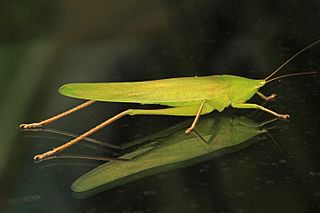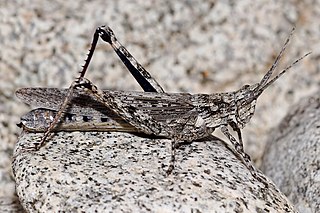
The Integrated Taxonomic Information System (ITIS) is an American partnership of federal agencies designed to provide consistent and reliable information on the taxonomy of biological species. ITIS was originally formed in 1996 as an interagency group within the US federal government, involving several US federal agencies, and has now become an international body, with Canadian and Mexican government agencies participating. The database draws from a large community of taxonomic experts. Primary content staff are housed at the Smithsonian National Museum of Natural History and IT services are provided by a US Geological Survey facility in Denver. The primary focus of ITIS is North American species, but many biological groups exist worldwide and ITIS collaborates with other agencies to increase its global coverage.

Sphaerites is a genus of beetles, the only genus in the family Sphaeritidae, sometimes called the false clown beetles. It is closely related to the clown beetles but with distinct characteristics. There are five known species, widespread in temperate area but not commonly seen.

The Encyclopedia of Life (EOL) is a free, online collaborative encyclopedia intended to document all of the 1.9 million living species known to science. It is compiled from existing databases and from contributions by experts and non-experts throughout the world. It aims to build one "infinitely expandable" page for each species, including video, sound, images, graphics, as well as text. In addition, the Encyclopedia incorporates content from the Biodiversity Heritage Library, which digitizes millions of pages of printed literature from the world's major natural history libraries. The project was initially backed by a US$50 million funding commitment, led by the MacArthur Foundation and the Sloan Foundation, who provided US$20 million and US$5 million, respectively. The additional US$25 million came from five cornerstone institutions—the Field Museum, Harvard University, the Marine Biological Laboratory, the Missouri Botanical Garden, and the Smithsonian Institution. The project was initially led by Jim Edwards and the development team by David Patterson. Today, participating institutions and individual donors continue to support EOL through financial contributions.
Peripsocidae is a family of Psocoptera belonging to the suborder Psocomorpha. Members of the family are characterised by their absence of an areola postica in their wings. Many of the recently described genera are closely allied to Peripsocus. The family includes more than 300 species.
The World Register of Marine Species (WoRMS) is a taxonomic database that aims to provide an authoritative and comprehensive list of names of marine organisms.

Stichopogon is a genus of small robber flies of the subfamily Dasypogoninae. There are at least 100 described species in Stichopogon.

iNaturalist is a citizen science project and online social network of naturalists, citizen scientists, and biologists built on the concept of mapping and sharing observations of biodiversity across the globe. iNaturalist may be accessed via its website or from its mobile applications. Observations recorded with iNaturalist provide valuable open data to scientific research projects, conservation agencies, other organizations, and the public. The project has been called "a standard-bearer for natural history mobile applications."
Paraidemona olsoni is a species of spur-throated grasshopper in the family Acrididae. It is found in North America.
Paraidemona is a genus of spur-throated grasshoppers in the family Acrididae. There are about nine described species in Paraidemona.
Paraidemona punctata is a species of spur-throated grasshopper in the family Acrididae. It is found in North America.
Stylurus amnicola, the riverine clubtail, is a species of clubtail in the family of dragonflies known as Gomphidae. It is found in North America.

Leptogaster is a genus of robber flies in the family Asilidae. There are at least 260 described species in Leptogaster.

Enallagma divagans, the turquoise bluet, is a species of narrow-winged damselfly in the family Coenagrionidae. It is found in North America.

Neoconocephalus triops, the broad-tipped conehead, is a species of Conocephalus fuscus in the family Tettigoniidae. It is found in the Caribbean and North America.
Hyptiotes puebla is a species of cribellate orb weaver in the family of spiders known as Uloboridae. It is found in the United States and Mexico.

Didymops floridensis, the Florida cruiser, is a species of cruiser in the family of dragonflies known as Corduliidae. It is found in North America.
Liancalus querulus is a species of long-legged fly in the family Dolichopodidae.
Paraidemona nuttingi is a species of spur-throated grasshopper in the family Acrididae. It is found in North America.
Paraidemona mimica, the mimic grasshopper, is a species of spur-throated grasshopper in the family Acrididae. It is found in North America.










